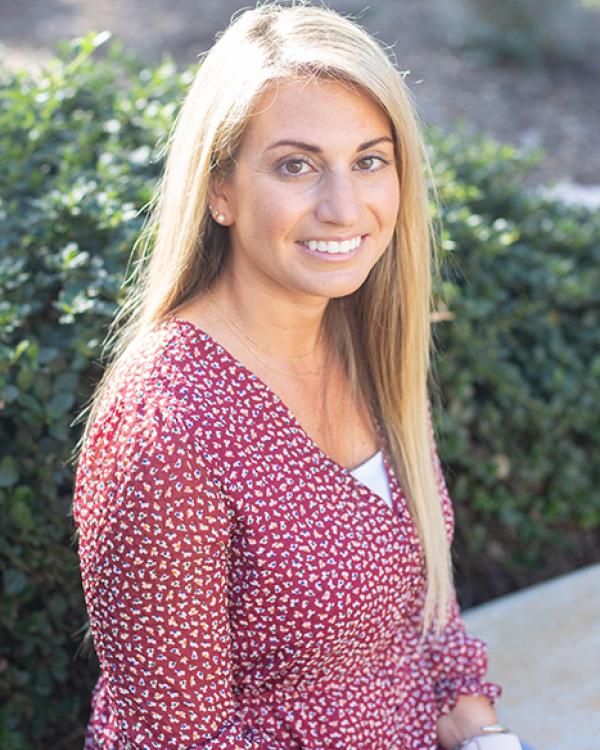
Alexis Spina graduated with a Ph.D. in Education this year. After graduating, she will be continuing a full-time position with Chegg, at educational technology company, where she has been working since last November. She also hopes to continue teaching in the TEP at Gevirtz and to tutor students in science and math.
GGSE: Would you tell me about your internship at Chegg? How did it help you develop as a researcher?
Spina: Last year I applied for various internships in User Experience Research. I wanted to explore different job opportunities other than academia, and UXR was one that I was curious about. I applied to a UXR internship with Chegg and after several rounds of interviews, they offered the position to me. While the entire internship was remote, it was one of the best experiences I have ever had. I learned so much about the tech industry, how the research skills I learned at UCSB transferred to this area, and how I could directly impact students with my research skills. I also learned how to communicate, collaborate, and operate in a tech company. I got to work with an amazing team and learn from phenomenal mentors. At the end of my internship, the CEO himself offered me a full-time job. I accepted and have been beyond happy with this opportunity!
GGSE: Tell us a little about your dissertation.
Spina: My dissertation looked at the Eight Standards for Mathematical Practice and how preservice mathematics teachers conceptualize these practices and implement them in their edTPA, a teacher performance assessment. I looked at preservice mathematics teachers from four separate universities and attempted to understand which practices they felt were the most important, which they needed more help with understanding, and how they incorporated these practices into their video lessons and their cognitively demanding tasks, both of which are components for their edTPA. My findings highlight the importance behind making sure our preservice mathematics teachers understand ALL of these practices, not just what they mean and their importance, but how to implement them in their classroom so that their students are fully prepared to be academically successful in mathematics.
GGSE: What's something you wish everyone knew about your research?
Spina: I believe there are a lot of takeaways from my research, but the most important thing to me is that MORE research needs to be done on this topic. In addition, direct action needs to be taken from this research so that we can ensure we are supporting preservice mathematics teachers in multiple ways and beyond just publishing papers on it.
GGSE: What do you enjoy most about teaching in the TEP?
Spina: The preservice teachers! They are all amazing and I am so impressed with how dedicated they are to education. I love sharing my knowledge and experiences of being a teacher with them, while they share their own experiences. We are constantly igniting each other's passions for education. In addition, working with Jen Scalzo and Chris Ograin has been such a highlight for me and I have learned so much from them both!
GGSE: Is there anyone at the GGSE you'd like to thank?
Spina: There are so many people I would like to thank! My advisor, Julie Bianchini, has been an amazing mentor. I am also thankful for the support and love given to me by Danielle Harlow, Chris Ograin, and Jen Scalzo. All of my peers, but especially Meghan Macias and all my STEMinar superstars.
GGSE: How are you celebrating your graduation this year?
Spina: Lots of food, lots of laughs, and lots of moments set aside to reflect on everything I have accomplished and those who helped me along the way.